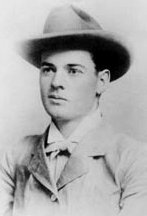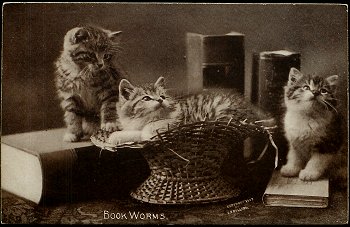 Future-President Herbert Hoover was first and last an engineer who specialized in mining, and he took both great pride in his profession as well as an acute interest in its history and antecedents. Accordingly, he was fascinated by Georgius Agricola's 1556 folio "De Re Metallica", which was, as he wrote in his autobiography, "the first important attempt to assemble systematically in print the world-knowledge on mining, metallurgy, and industrial chemistry. It was the great textbook of those industries for two centuries and had dominated thought and practice all that time. In many mining regions and camps, including the Spanish South America, it was chained to the church altar and translated by the priest to the miners between religious services."
Future-President Herbert Hoover was first and last an engineer who specialized in mining, and he took both great pride in his profession as well as an acute interest in its history and antecedents. Accordingly, he was fascinated by Georgius Agricola's 1556 folio "De Re Metallica", which was, as he wrote in his autobiography, "the first important attempt to assemble systematically in print the world-knowledge on mining, metallurgy, and industrial chemistry. It was the great textbook of those industries for two centuries and had dominated thought and practice all that time. In many mining regions and camps, including the Spanish South America, it was chained to the church altar and translated by the priest to the miners between religious services." Hoover continues- "No one had ever succeeded in translating it into English, although several had tried... The problem of the 'untranslatable' Agricola fascinated us both (he and Mrs. Hoover, who was a good Latinist) and finally in 1907 we resolved to translate it jointly. There were formidable difficulties; for while Agricola's Latin was scholarly enough, he was dealing with subjects the whole nomenclature and practice of which had developed hundreds of years after the Latin language had ceased to grow. He did not adopt into the text the German, Italian or English terms for the operations or substances he described, but coined or adapted Latin terms for them... The job (of properly translating) involved finding out -either from the context, from German, French, Italian, or other fragmentary literature of the times, or from study of the processes themselves -what he meant... Sometimes the task amounted more to scientific detective work than to translation...I could often have the meaning of one of his terms worked out in our laboratories. Often enough, when we discovered the meaning of a term we found that there was no modern word to express it because that particular process had been long abandoned. In any event, we grappled with it sentence by sentence, during our spare time, month after month, for over five years."
The production of the book itself, once the manuscript was completed and had been revised four times, was equally painstaking. Hoover asked a fellow-engineer for advice, and was introduced to a printer in the north of England named Frost...
"When Frost saw the manuscript and the original his eyes glistened. He exclaimed that all his life he had been a commercial printer and had always wanted to do such a book. In order to make the book as like the original as possible, he found a papermaker who could produce a sixteenth-century linen paper. He had a font of type cast in exact reproduction of the original except for the ancient letter S, which is confusing to modern readers. He printed it as a folio volume with all the old prints and illustrations in astonishing fidelity to the original. By a little juggling of the opening sentence in each chapter, we were able to include reproductions of the old illuminated initial letters. Mr. Frost bound it in white vellum as the original was bound. No more beautiful job of printing was ever turned out."
But more than simply a translation and reproduction, Hoover also added his own knowledge to the book- "In addition to the translation, I wrote an introduction covering the times and circumstances under which Agricola lived and worked, with a brief biography of him. We included full statement of all the known editions. I prepared extensive footnotes describing previous processes so far as knowledge of them is preserved -including those in Roman and Greek times. The footnotes also explained the processes and methods described by Agricola in relation to our modern practice."
Hoover's translation remains the definitive one, and a beautiful example of bookmaking as well. Perhaps the last word on the profession of mining should be left to Hoover himself, as he related an incident in his autobiography. It occurred one morning at breakfast in the fashionable dining salon of a great ocean liner on which he was returning to America from a stint at Oxford.
"At my ship's table sat an English lady of great cultivation and a happy mind, who contributed much to the evanescent conversation... we were coming up New York harbor at the final farewell breakfast, when she turned to me and said, 'I hope you will forgive my dreadful curiosity, but I should like awfully to know -what is your profession?' I replied that I was an engineer. She emitted an involuntary exclamation and said "Why, I thought you were a gentleman!'

No comments:
Post a Comment